No Results Found
The page you requested could not be found. Try refining your search, or use the navigation above to locate the post.
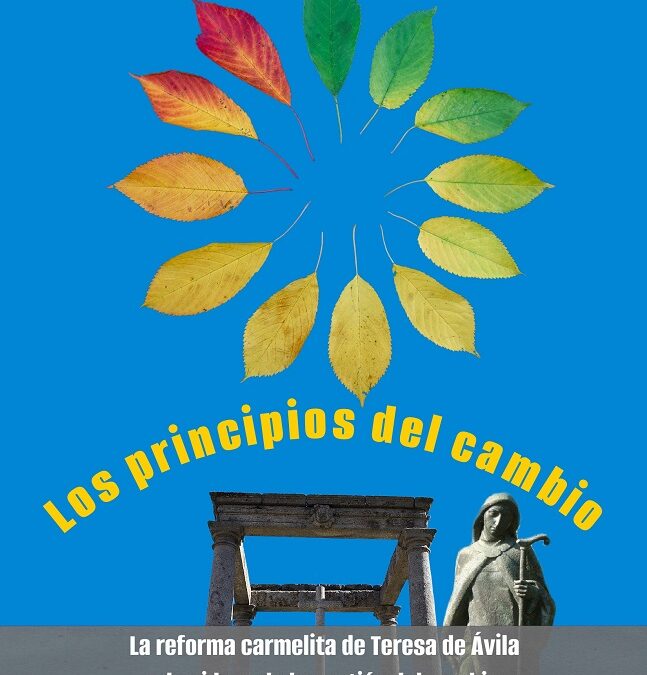
Este libro se basa en los principios de gestión del cambio organizacional para examinar la reforma de la Orden Carmelita de Teresa de Ávila en el siglo XVI. Durante los últimos veinte años de su vida, Teresa abordó los problemas que vio en los monasterios carmelitas de su época, incluida la administración ineficaz, el hacinamiento y la laxitud en las prácticas espirituales. Al volver al propósito original y la Regla escrita de los fundadores carmelitas, Teresa lanzó una reforma de la Orden Carmelita utilizando principios similares a los que se aplican en la gestión del cambio y la adopción de tecnología de la información (TI) de la actualidad. Este libro examina su reforma a la luz de la teoría y la práctica de la gestión del cambio, con el fin de arrojar luz sobre lo que hizo que su reforma fuera exitosa y cómo se podría aplicar su enfoque a la gestión del cambio en las organizaciones espirituales y seculares de hoy.
Paperback $14.95 | Kindle $9.99
“Para contrarrestar la idea de que los santos y los místicos son ajenos a la vida cotidiana, la Dra. Kristina Olsen, en Principles of Change: Teresa of Avila’s Carmelite Reform and Insights from Change Management muestra a Teresa de Ávila muy implicada en el tratamiento de los problemas relacionales y la resistencia a la reforma en las comunidades carmelitas que fundó. La espiritualidad es una disciplina interdisciplinaria, pero Olsen lleva los estudios de espiritualidad en una nueva dirección al recurrir al campo de la administración de empresas. Lo que surge es una apreciación mucho más rica del talento de Teresa de Ávila, ya que Olsen destaca el talento de la mística para la gestión y la reforma de las organizaciones. La resonancia entre los esfuerzos contemporáneos para motivar a la gente a adoptar las nuevas tecnologías y el enfoque de Teresa para invitar a sus monjas a la reforma es sorprendente. Esta obra innovadora es una importante contribución a los estudios teresianos”. – Raymond Studzinski, O.S.B., Ph.D., Director, Programa de Doctorado en Espiritualidad, Escuela de Teología y Estudios Religiosos, Universidad Católica de América
“Este es un libro sorprendentemente oportuno que nos enseña cómo el conocimiento y la religión han convivido durante siglos. El libro describe convincentemente cómo Teresa utilizó lo que podríamos llamar ‘principios de cambio organizativo’ para realizar cambios importantes en los monasterios carmelitas. Teresa abordó problemas no muy diferentes a los nuestros hoy en día: gestión incompetente, moral laxa, falta de dirección clara. La Dra. Olsen muestra cómo las estrategias que empleó Teresa pueden utilizarse, y se utilizan, para animar a los trabajadores a adoptar y aceptar las nuevas tecnologías. Eso incluye fomentar una actitud favorable tanto a la tecnología como al cambio, viendo los beneficios de adoptar la nueva tecnología. La autora se basa en los estudios sobre el “comportamiento planificado”, la gestión de la resistencia, la innovación y la “aceptación”. La Dra. Olsen conoce su temática. Durante varios años, ha enseñado la espiritualidad carmelita y otras materias en el Colegio y Seminario de los Santos Apóstoles en Cromwell, CT. Sus estudios de Doctorado en Administración de Empresas culminaron con su disertación sobre “El papel de la actitud en la aceptación y adopción de la tecnología de la información”. Principles of Change muestra que el liderazgo, el conocimiento y la espiritualidad pueden ser compatibles. De hecho, pueden ser justo lo que la sociedad necesita hoy en día”. – James P. Gelatt, Ph.D., Profesor, Doctor en Administración de Empresas, Universidad de MD Global Campus
La Dra. Kristina Olsen tiene un Doctorado en Teología y Espiritualidad (Ph.D) de la Universidad Católica de América, otro Doctorado en Adminstracion de Empresas (D.B.A).de la Universidad de Maryland, y una Maestria en Ciencias de la Computación (M.S.) de la Universidad Northwestern. También tiene certificaciones en Gestión de Proyectos (PMP) y Gestión del Cambio (PCP). Está jubilada de los Laboratiorios Bell, donde fue miembro del personal técnico. Actualmente trabaja en la Oficina de Innovación y Tecnología de la Ciudad de Filadelfia. También imparte cursos de Teología, Negocios y Tecnologías de la Información en varias universidades. Es miembro de la Orden Seglar de los Carmelitas Descalzos (OCDS).
The page you requested could not be found. Try refining your search, or use the navigation above to locate the post.
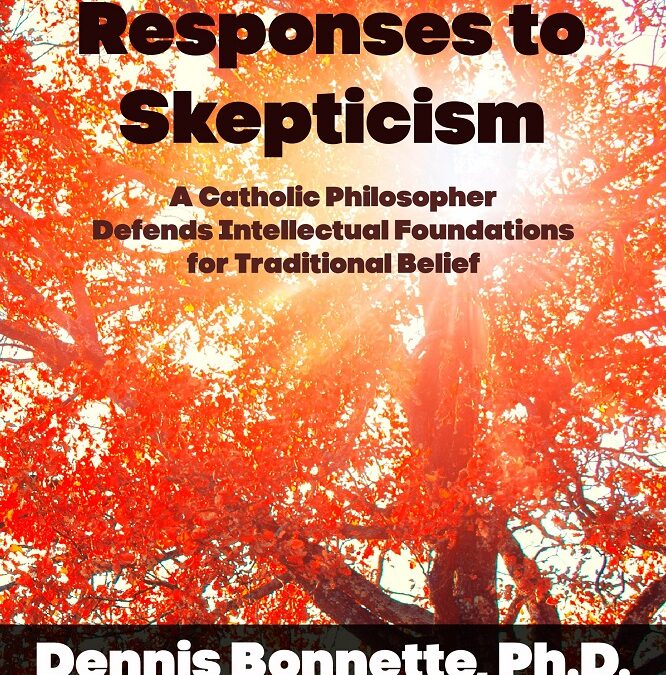
Following an avalanche of spirited criticism from skeptics, agnostics, and atheists, who have provided forceful intellectual attacks against Thomistic philosophy and Catholic apologetics – including objections posed by naturalism and contemporary analytic philosophy, Dr. Bonnette has assembled a collection of his most salient articles containing a reasoned defense of the Catholic faith. These articles are organized within this book into sections that (1) demonstrate the weaknesses of today’s philosophy of naturalism, (2) defend epistemological certitudes and metaphysical universal principles, (3) study man — the unique spiritually-souled animal, (4) prove God’s existence, (5) examine God’s nature, (6) solve the problem of evil, (7) defend natural law ethics, and finally, (8) rationally examine various revealed realities — from Adam and Eve to modern-day miracles. A must-read for Catholics who want reasoned responses to common criticisms of classical theism and their faith.
Paperback: $29.95 | Kindle: $9.99
“Well-trained in Thomistic epistemology and metaphysics, Bonnette is able to apply calm and rational responses to those who raise questions about the existence of God, the freedom of the will, the essential difference between humans and animals, and the possibility of miracles.” – Dr. Robert Fastiggi, Professor of Dogmatic Theology, Sacred Heart Major Seminary, Detroit, MI
“Dr. Dennis Bonnette’s work has had a very large impact — everything he writes gets noticed — no doubt due to his unwavering commitment to orthodoxy. Rational Responses to Skepticism is a true contribution to Catholic thought.” – Matthew Levering, James N. Jr. and Mary D. Perry Chair of Theology, Mundelein Seminary
The page you requested could not be found. Try refining your search, or use the navigation above to locate the post.
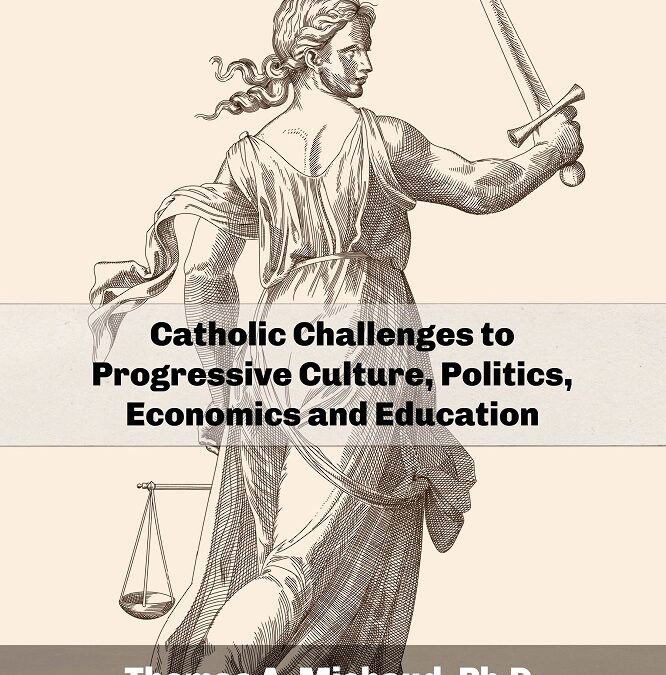
In recent decades in the United States, various derivative forms of Progressivism have emerged that manifest its lack of philosophical cohesion and authoritarian proclivity, such as:
1) Postmodernism, which was actually anti-Modernism with its rejections of Rationalism, Scientific Positivism and any traditional-based metaphysics and ethics;
2) Authoritarian Politically Correct and Cancel Culture standards of moral righteousness; and,
3) Woke mentality that employs social and mainstream media to transform the “people” into a conformist, hive-minded ruling mob.
This book demonstrates in an Augustinian manner how contemporary Progressivism, to its own detriment, has become a political ideology and can no longer be considered a political philosophy.
Paperback: $19.95 | Kindle: $9.99
Hancock, Curtis. (2023, Feb. 1). “The Catholic Challenge to Progressivism.” The Postil Magazine. To read the review, click here.
“What kind of Catholics are needed in modern politics? Considering Thomas Michaud’s book After Justice: Catholic Challenges to Contemporary Culture, Politics, Education and Economics, one can argue that modern politics especially needs Catholics of intelligence and virtue. For only an intelligent Catholic will recognize the fact that the contemporary political forum is under the spell of Progressivism, giving preference to opinion over truth, positive law over natural law, and ideology over philosophy. In turn, only a virtuous Catholic will be able to oppose the power of Progressive nominalism, conventionalism, and manipulation in the most ethical and effective way. With Michaud’s book comes the hope that the intelligence and virtue that make up Catholic ethos will also make it possible to protect current and future culture, politics, education, and economics against the disastrous consequences of Progressivism.” – Fr. Paweł Tarasiewicz, Ph.D. – Adler–Aquinas Institute, Colorado Springs, Colo., USA
“Thomas A. Michaud’s After Justice is a collection of the author’s articles focused on issues fundamental to understanding Western culture, including philosophy, religion, politics, democracy, leadership, education, rhetoric, and economics. Michaud explains these issues, pointing to their threats occurring in contemporary reality, as well as showing the deep context of philosophical transformations taking place in these areas of culture. He explains in a very perceptive way the causes of the phenomena discussed, which include nihilism, relativism, progressivism, atheism, liberalism, individualism, collectivism, and totalitarianism. The problems explored here are fundamental and eminently practical issues, both for humanity itself and for our culture. The path we take in explaining them, however, is extremely important. It must be an authentic philosophical cognition, which is built on the search for knowledge of the ultimate truth about the meaning of human life, as well as reality as a whole. This cognition, which is essentially at the service of the truth and respect for the human good, offers the chance to reveal and overcome the evils of various errors and ideologies. Such is the very rich philosophical perspective that this book presents to us.” – Dr. Habil. Imelda Chłodna-Błach, John Paul II Catholic University of Lublin
“Tom Michaud is a genuinely unforgettable character. He has a certain American quality in strength of character and voice, and yet these qualities are complemented by a graceful and dexterous imagination, a razor-sharp intellect, and an irrepressible sense of humor. These talents combine to make him an arresting storyteller, with a talent for perceiving in ordinary events grounds for extraordinary narrations. Dr. Michaud is also an accomplished academic of international renown. He is a philosopher’s philosopher because he loves the truth, fortified by the conviction that reason and realism are necessary conditions to find the truth. As a lover of reason, he also explores truth in Christian teachings, recognizing, as did Aquinas, that reason is faith’s best friend. This book is both an intellectual treasure and a remedy for our deformed times, especially for those who hope for the triumph of justice.” – Professor Dr. Hab. Piotr Jaroszyinski, John Paul II Catholic University of Lublin, Poland

Thomas A. Michaud, Retired, Dean, School of Professional Studies and Professor of Philosophy, West Liberty University (WLU) earned his M.A. and Ph.D. from Marquette University and his B.A. (Honors) from Fairfield University (CT). He has taught at Wheeling Jesuit University, Marquette University, Mount St. Mary’s University (MD), Siena University (NY), and Rockhurst University (Kansas City, MO). His international experience includes a Smith Fellowship for the Husserl Archives at the University of Louvain (Leuven), Belgium, a Senior Fulbright Lectureship for the Federal University of Rio de Janeiro, Brazil, and the inaugural lecturer for the Rev. Jacek Woroniecki Memorial English Language Lectures in Philosophy, John Paul II Catholic University of Lublin, Poland.
Emphasizing his “common sense” approach, he has held seminars in leadership and ethics for many government and civic groups, professional associations, non-profit organizations, and educational institutions (including Duke Univ.’s Fuqua School of Business MBA program). In addition, Tom has designed and delivered extensive leadership ethics education programs for Wheeling Pittsburgh Steel Corp., Columbia Gas Transmission Corp., Columbia Gulf Transmission Company, Columbia Natural Resources Corp., Cabela’s Distribution Center and Dermox Corp.
He is the recipient of a WV Humanities Council Research Fellowship, former Director of the WV Business and Professional Ethics Project, a Kettering Foundation Contract Scholar, and a past-President of the Gabriel Marcel Society. He is also past-Vice President of the WV Humanities Council, and a former member of the Executive Council of the American Catholic Philosophical Association.
Besides writing a business ethics and leadership column (1996 to 2007) for The State Journal (WV’s leading business newspaper), he also has regularly written editorials for Nasz Djiennik (a Polish Catholic newspaper). His course text, The Virtues of Business Ethics, is published by Copley Custom Publishing Group, Third Edition, 2010. His numerous papers, articles and reviews include publications in Philosophy Today, Renascence, The Review of Metaphysics, The Philosophy Research Archives, The lnter-American Review of Bibliography, Studia Gilsoniana, Man in Culture, The Kettering Review, Higher Education Exchange, Studia Philosophiae Christianae, Business Ethics Magazine and Ethics West Virginia. The anthology he edited and introduced, Gabriel Marcel and the Postmodern World, appeared as a special double volume of the Journal of the American Society of Philosophy in the French Language. He was also the Guest Editor for and a contributor to the Gabriel Marcel special issue of The American Catholic Philosophical Quarterly.
Dr. Michaud regularly designed courses for, taught in, developed and implemented various types of non-traditional, accelerated adult degree completion programs. These include both undergraduate and graduate (Master of Science in Organizational Leadership, MBA, Executive MBA, Master of Professional Studies- MPS) programs. As Dean, Michaud essentially started the WLU School of Professional Studies (SPS), initiating its programs (Bachelor of Leadership and Administration, Professional Studies course concentrations, Master of Professional Studies in Organizational Leadership and Justice Leadership) and contributing to the management of the WLU Highlands Center.
The page you requested could not be found. Try refining your search, or use the navigation above to locate the post.
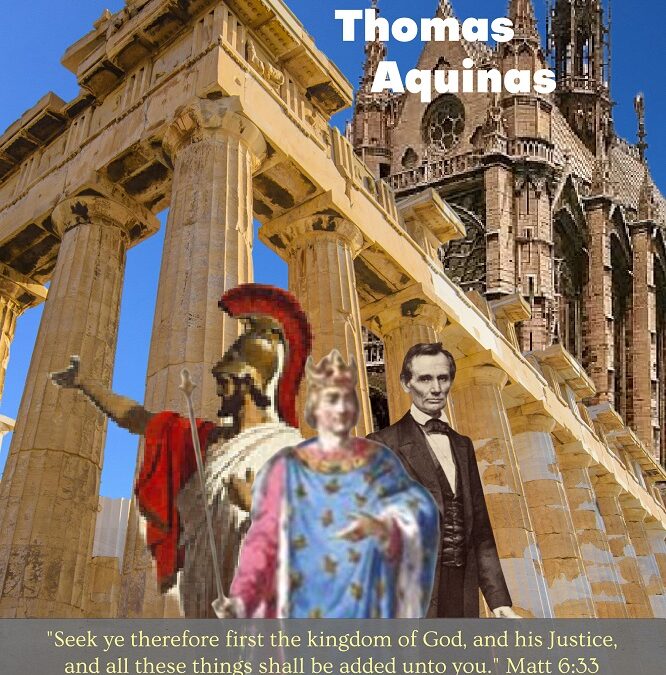
This book seeks to provide a relatively complete basis for the understanding of political science as presented by Aristotle, with the help of Saint Thomas Aquinas mainly by way of his (partial) commentary on Aristotle’s Politics and his own work “On Kingship”.
There is sufficient in this we believe to give anyone good philosophical grounds for a solid critique of the modern studies, not only in Political Science and related subjects, but also, taken together with our book Economic Science and Saint Thomas Aquinas, in Economic Science. Indeed, such a critique seen in the light of the practical ethical principles brought out in the study of Aristotle and Aquinas may justifiably be such as to rise to the level of a severe condemnation simply from the standpoint of common morality and common sense.
Paperback $24.95 | Kindle $9.99
“The restoration of Aristotle’s Ethics and Politics as the necessary basis of political science is the principal objective of Political Science and St Thomas Aquinas. With this book Dr Boland has provided an excellent exposition of two works of St Thomas Aquinas: his Commentary on the Politics of Aristotle and his work on Kingship. Dr Boland has very skillfully traced the golden thread provided by St Thomas and contrasted it against the theories underpinning modern political science where authentic metaphysics has given way to an all-embracing mathematical quantification of nature, and human psychology has (in the words of Chesterton) degenerated from the study of anthropos to the study of anthropoids. Political Science and St Thomas Aquinas is a most thought-provoking book. To me it serves admirably at the level of human reason and philosophical reflection the papal motto of St Pius X: “to restore all things in Christ.” – Frank Calneggia, author of Assertions and Refutations: An Assessment of Dr Tracey Rowland’s Natural Law: From Neo-Thomism to Nuptial Mysticism
The page you requested could not be found. Try refining your search, or use the navigation above to locate the post.
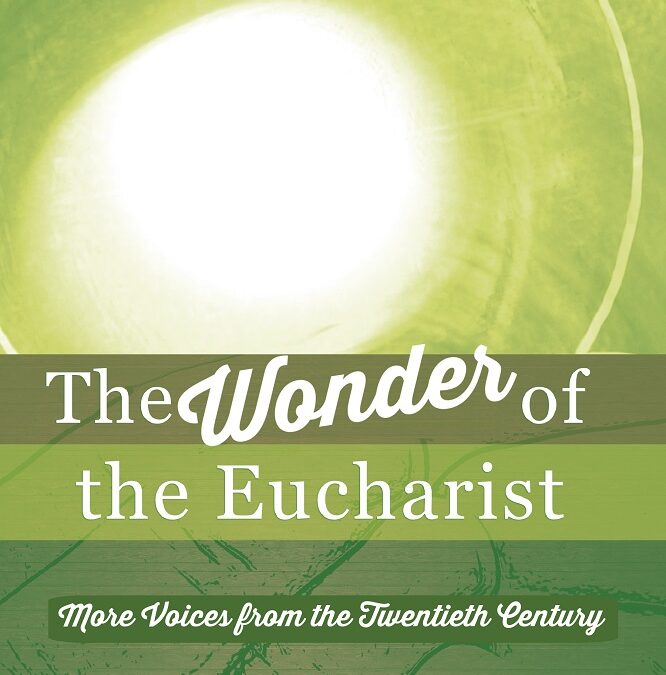

This book examines some of the major literary voices from the past century who deepened our understanding of the Eucharist by embedding it in their short stories, novels, memoirs, and spiritual writings. The voices within these pages give witness to the abiding yet ever elusive presence of the God who calls himself, “Emmanuel, which means, God with us” (Mt 1:23).
Paperback: $34.99 | Kindle: $9.99
“As a professor of literature, I greatly appreciate Fr. Billy’s contribution to my field in his charting from the great Christian authors of the twentieth century their views on the Eucharist. I can confidently connect this book to my literature survey course and demonstrate the importance of the Eucharist in our Catholic literary tradition.” – Dr. Sebastian Mahfood, OP, author of The Narrative Spirituality of Dante’s Divine Comedy

Fr. Dennis J. Billy, C.Ss.R., is Professor Emeritus of the history of moral theology and Christian spirituality at the Alphonsian Academy of the Pontifical Lateran University in Rome and currently serves as The Robert F. Leavitt Distinguished Service Chair in Theology at St. Mary’s Seminary & University in Baltimore. An American Redemptorist of the Baltimore Province, Fr. Billy has advanced degrees from Harvard University, the Pontifical University of St. Thomas (Angelicum), and the Graduate Theological Foundation. The author of numerous books and articles on a variety of religious topics, he is also active in his order’s retreat apostolate and in the ministry of spiritual direction.
The page you requested could not be found. Try refining your search, or use the navigation above to locate the post.
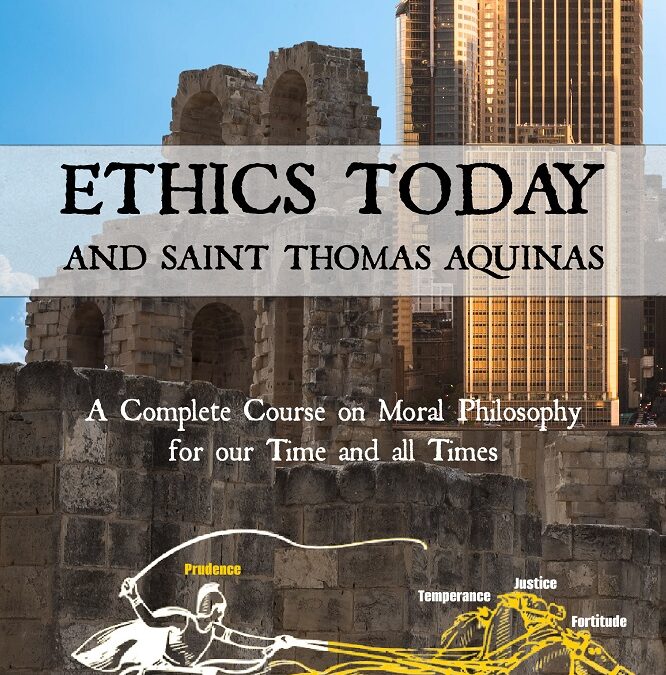
This book seeks to provide a complete moral philosophy based on the works of St. Thomas Aquinas. The first part deals with the principles or ‘theory’ according to the final cause, efficient cause, material cause and formal cause. Setting aside grace, it concerns the ultimate end, or happiness as intended; the will and the human act as the principal efficient or moving cause and subject; the sense appetites as the secondary moving and material causes, the intrinsic formal causes which are the habits in the will and sense appetites; and law as the extrinsic formal principle of all human behaviour. The second part deals with the four cardinal virtues and all virtues under them, setting aside the theological virtues, and adding as a fifth section a more detailed treatment of happiness as effected.
Paperback $24.95 | Kindle $9.99
“As its title indicates, Dr Donald Boland’s book is indeed a complete course on moral philosophy for our time and for all time. The moral philosophy of St Thomas Aquinas and Aristotle is exposed and explained in wonderful order and with great clarity. The seminarians for whom this text was originally written as a series of lectures were indeed blessed to have had Dr Boland as their teacher. I recommend it not only to Catholic teachers and students, but to all persons of good will who are desirous of a sane education in right morals and virtue. I believe this book is destined to do a lot of good.” – Frank Calneggia, author of Assertions and Refutations: An Assessment of Dr Tracey Rowland’s Natural Law: From Neo Thomism to Nuptial Mysticism
The page you requested could not be found. Try refining your search, or use the navigation above to locate the post.